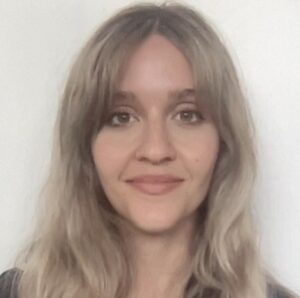
Dr Melissa Aji
‘A Preventative Digital Intervention for Children with Night-time Fears.’
Black Dog Institute
University of New South Wales, NSW
Awarded 2024
“Prevention programs have a really unique potential in that if we act early, we can reduce the development of more severe disorders. One way to do this is by identifying and targeting early warning signs. ”
Researcher Profile
I am a clinical postdoctoral researcher in the field of child mental health at the Black Dog Institute, having received my Doctor of Philosophy (Medicine) from the University of Sydney, graduating in May 2021 for my thesis titled ‘The design, implementation and evaluation of a mobile application for insomnia’. I am currently a Post-doctoral Research Fellow in the Child Mental Health Research Team at the Black Dog Institute, The University of New South Wales.
I am also a Clinical Psychologist (Registrar). I predominantly see a range of young people and adults and provide assessment and treatment for a range of mental health disorders including anxiety, depression and insomnia.
Project Summary
Night-time fears are common in childhood, experienced by approximately 85% of children aged 7-12. About one-third of these children develop more persistent and debilitating symptoms. This can be interfering for all family members, impacting on family sleep, routine and stress. Research suggests that nighttime fears can be an early sign of anxiety and sleep problems. This provides a promising opportunity to target these children with early symptoms with a program to help prevent the development of anxiety and sleep disorders.
This research will involve the development of a digital intervention which provides psychological treatment for nighttime fears. It will be developed by researchers, clinicians and with the input of people with lived experience (i.e. children with nighttime fears and their parents). The research will also involve several studies to test whether it is feasible and effective in children aged 4-12 years old.